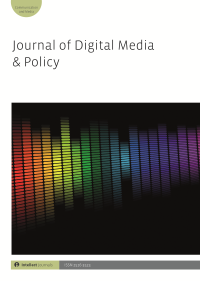
Full text loading...

Google, Apple, Facebook, Amazon, Microsoft and Netflix have come under intense criticism for acquiring undue influence on the media, economy, society and democracy. Google and Facebook’s business models, especially, are cast as a form of ‘vampire economics’ responsible for the crisis of journalism and upending the media industries. Many media scholars argue that since the platforms increasingly function like media companies, media policy should be our North Star with respect to what new approaches to internet regulation should look like. This article agrees that a forceful response to the platforms is overdue but criticizes the case against them for too often resting on cherry-picked evidence and an exaggerated sense of their clout, while references to media policy obscure a better approach that draws on four principles from telecoms regulation to guide a new generation of internet regulation: structural separation, line of business restrictions (i.e., firewalls), public obligations and public alternatives.

Article metrics loading...

Full text loading...
References


Data & Media loading...

Publication Date:
https://doi.org/10.1386/jdmp_00025_1 Published content will be available immediately after check-out or when it is released in case of a pre-order. Please make sure to be logged in to see all available purchase options.